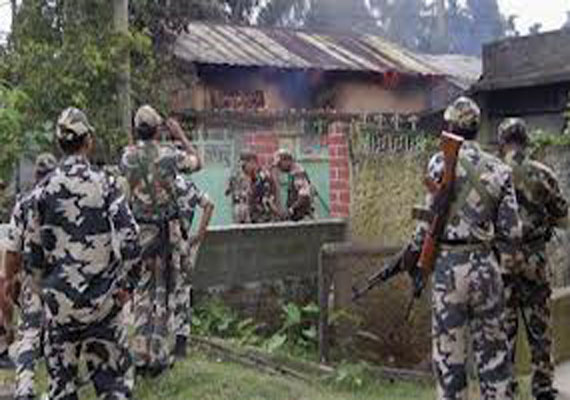
Guwahati, November 16: An Indefinite curfew was clamped and the Army called out in Kokrajhar district on Thursday after miscreants gunned down a 50-year-old man at Telipara under the Gossaigaon police station. Another man was injured in a stabbing incident in Kokrajhar town, headquarters of the Bodoland Territorial Area Districts (BTAD), under the Bodoland Territorial Council (BTC).
Assam Home Secretary G.D. Tripathi told The Hindu that the Kokrajhar district administration clamped curfew in the entire district around 11 a.m. and called out the Army, apprehending that the situation might escalate following these incidents. “One column of the Army has been deployed and it has been staging flag marches in vulnerable areas,” he said.
Prime Minister Manmohan Singh called Chief Minister Tarun Gogoi in the evening to take stock of the situation in Kokrajhar district and other areas of the BTAD. An official at the Chief Minister’s Office said Mr. Gogoi gave the Prime Minister a detailed briefing on the measures taken by the government to curb violence in the BTAD. Dr. Singh told Mr. Gogoi that various evil forces had been trying to foment trouble in different parts of the country and such forces must be dealt with, with an iron hand, the official added. Earlier in the day, Mr. Gogoi told journalists that he had spoken to the Army Chief and discussed with him the need to intensify counter-insurgency operations.
In the first incident, which occurred at Telipara village, the victim was identified as Nireson Basumatary of Shahjuri village. He sustained two bullet injuries. In the other incident, one Md. Abdul Kalam hailing from Kajaikata village under Bilasipara police station in Dhubri district was injured when miscreants stabbed him at a vegetable market in Kokrajhar town.
Following Thursday’s violence, the death toll in the BTAD area in a fresh bout of attacks by miscreants from among the Bodos and Muslims had gone up to six over the past six days. In July and August, clashes among the Bodos and the Muslims claimed 97 lives and displaced and forced 4.85 lakh people to take shelter in 340 relief camps, As on Thursday, 36,576 displaced (Muslims - 33147, Bodos - 3429) were still taking shelter in 80 relief camps.
In another incident, miscreants gunned down one person at Tanga in Udalguri district of BTAD. The miscreants shot at the person at his hardware shop. He died on way to the Mangaldai civil hospital. The victim has been identified as Rabindra Dey(32).





Comments
Add new comment